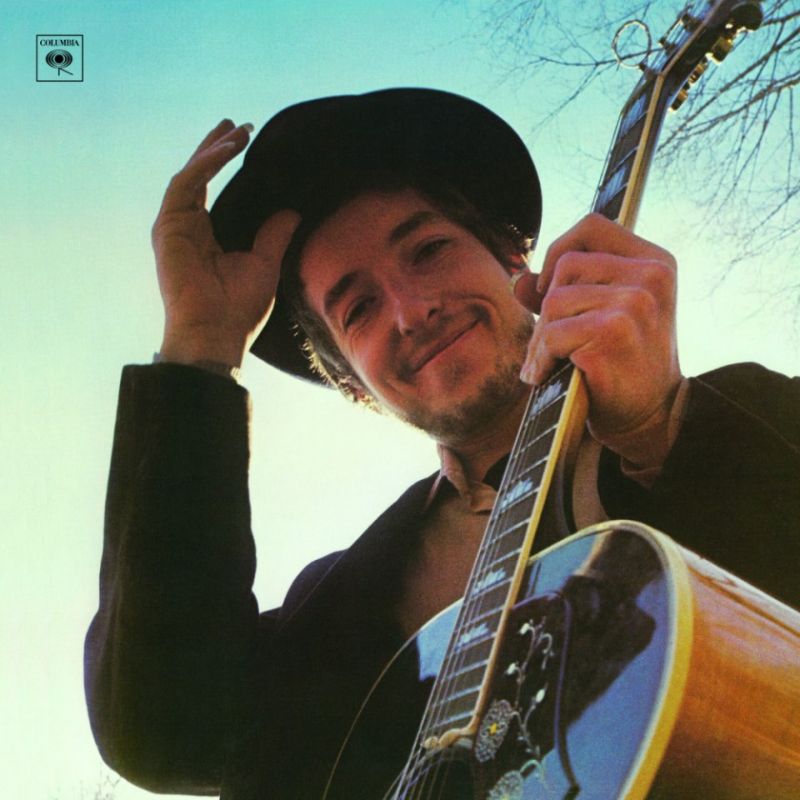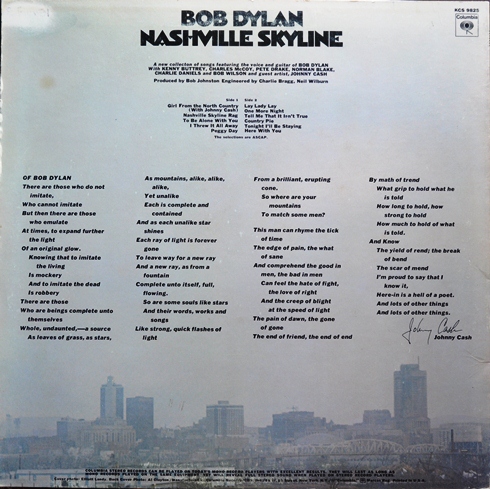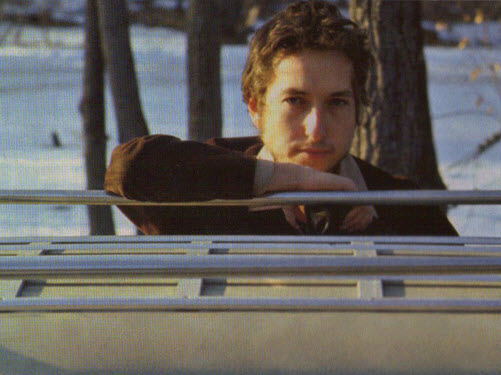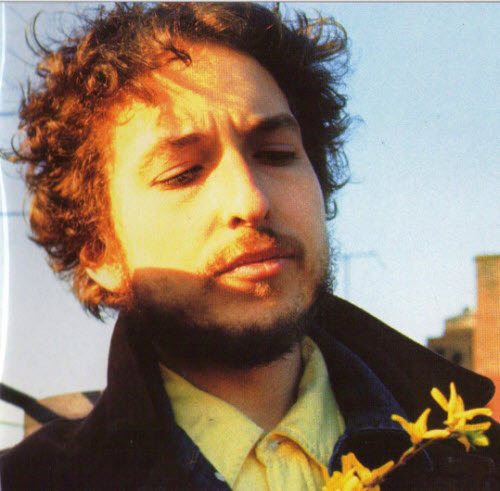Well, Jann, I’ll tell you something. There’s not too much of a change in my singing style, but I’ll tell you something which is true… I stopped smoking. When I stopped smoking my voice changed… So drastically, I couldn’t believe it myself. That’s true. I tell you, you stop smoking those cigarettes (laughter)… and you’ll be able to sing like Caruso.
~Bob Dylan (to Jann Wenner Nov 1969)Anyway, on Nashville Skyline you had to read between the lines. I was trying to grasp something that would lead me on to where I thought I should be, and it didn’t go nowhere – it just went down, down, down.
~Bob Dylan (to Jonathan Cott, Sept 1978)
The first recording session for “Nashville Skyline” was held on February 12, 1969 – but no recordings sheets are available from this session. The second session took place the day after – February 13, 1969. Dylan landed 3 master versions this evening.
Some background from wikipedia:
Nashville Skyline is the ninth studio album by American singer-songwriter Bob Dylan, released in April 1969 by Columbia Records.
Building on the rustic style he experimented with on John Wesley Harding, Nashville Skyline displayed a complete immersion into country music. Along with the more basic lyrical themes, simple songwriting structures, and charming domestic feel, it introduced audiences to a radically new singing voice from Dylan—a soft, affected country croon.
The result received a generally positive reaction from critics, and was a commercial success. Reaching number 3 in the US, the album also scored Dylan his fourth UK number 1 album.
In February 1969, Dylan returned to Nashville to begin work on Nashville Skyline. It had been over a year since his last album, John Wesley Harding, was released, and it had been fifteen months since he produced that album, the last time he was in a recording studio. Many of the Nashville area studio musicians appearing on this album later became the core of Area Code 615 and Barefoot Jerry.
Dylan held sessions at Columbia’s Studio A, scheduling the first on February 12, but there is no record of any work from that first session. A second session held the following day produced master takes of “To Be Alone With You”, “I Threw It All Away”, and “One More Night.” Dylan also made several attempts at “Lay Lady Lay”; as with “I Threw It All Away”, “Lay Lady Lay” was written in 1968, one of the few songs written by Dylan that year.
In the end, Nashville Skyline is a lovely album but not a heavyweight contender, though its effects were major ones. Country music was despised, hick music when Dylan took it up. People were divided into the hip and the non-hip. The counterculture was in full swing and riddled with its own self-importance and snobbery. Nashville Skyline was a hard pill to swallow: but it did ’em good.
~Michael Gray (The Bob Dylan Encyclopedia)
Columbia Studio A
Nashville, Tennessee
February 13, 1969 – 6-9 pm and 9-12 midnight.
Produced by Bob Johnston.
Songs:
- To Be Alone With You
- To Be Alone With You
- To Be Alone With You
- To Be Alone With You
I wrote To Be Alone With You – that’s on Nashville Skyline – I wrote it for Jerry Lee Lewis.
~Bob Dylan (to Jann Wenner Nov 1969)
- To Be Alone With You
- To Be Alone With You
- To Be Alone With You
- To Be Alone With You
- I Threw It All Away
- I Threw It All Away
“I Threw It All Away” is one of two songs on Nashville Skyline that demonstrates enough attention to lyrical detail to suggest that he had lived with it for more than a week.
~Clinton Heylin (Revolution in the air)
- I Threw It All Away
- I Threw It All Away
- Blues
- One More Night
- One More Night
- One More Night
- One More Night
- One More Night
- One More Night
“One More Night” stands as the best of the songs Dylan wrote in haste to fulfill his (nonexistent) contractual obligations in the days/hours leading up to the Nashville Skyline sessions. Unfortunately, the vocal utterly fails to convince us that there is even the slightest heartache underlying the singer’s claims.
~Clinton Heylin (Revolution In The Air)
- Lay Lady Lay
- Lay Lady Lay
- Lay Lady Lay
- Lay Lady Lay
Personnel:
- Bob Dylan (vocal, guitar & harmonica)
- Bob Wilson (piano)
- Charlie Daniels (guitar)
- Charlie McCoy (bass)
- Norman Blake (guitar)
- Kelton D. Herston (probably guitar)
- Kenneth Buttrey (drums).
tracks 9–12
- Wayne Moss (guitar)
- Peter Drake (steel guitar)
Related articles @ JV:
References:
- Bob Dylan: The Recording Sessions – Part One – by Michael Krogsgaard
- Still On The Road – Olof Björner
-Egil





“Of Bob Dylan”
There are those who do not imitate,
Who cannot imitate
But then there are those who emulate
At times, to expand further the light
Of an original glow.
Knowing that to imitate the living
Is mockery
And to imitate the dead
Is robbery
There are those
Who are beings complete unto themselves
Whole, undaunted,-a source
As leaves of grass, as stars
As mountains, alike, alike, alike,
Yet unalike
Each is complete and contained
And as each unalike star shines
Each ray of light is forever gone
To leave way for a new ray
And a new ray, as from a fountain
Complete unto itself, full, flowing
So are some souls like stars
And their words, works and songs
Like strong, quick flashes of light
From a brilliant, erupting cone.
So where are your mountains
To match some men?
This man can rhyme the tick of time
The edge of pain, the what of sane
And comprehend the good in men, the bad in men
Can feel the hate of fight, the love of right
And the creep of blight at the speed of light
The pain of dawn, the gone of gone
The end of friend, the end of end
By math of trend
What grip to hold what he is told
How long to hold, how strong to hold
How much to hold of what is told.
And Know
The yield of rend; the break of bend
The scar of mend
I’m proud to say that I know it,
Here-in is a hell of a poet.
And lots of other things
And lots of other things.
— Johnny Cash
His voice changed because he got over one of his john’s almost choking him to death on new years eve 1961 at hotel on forty deuce when he was a male prostitute.
Alternative facts?